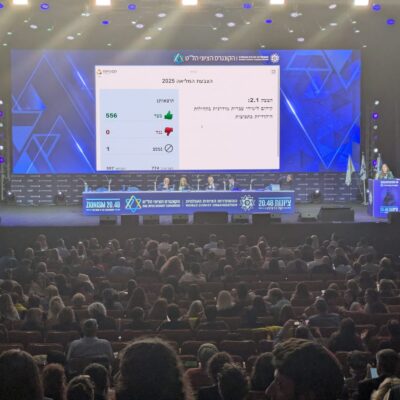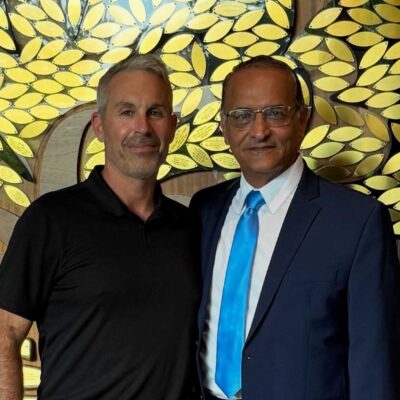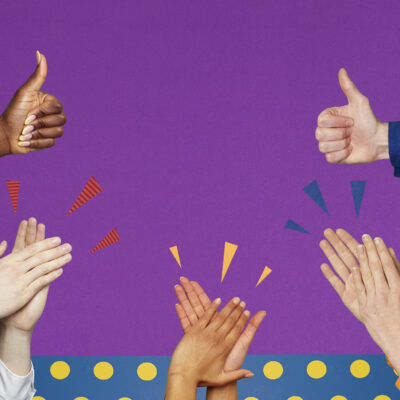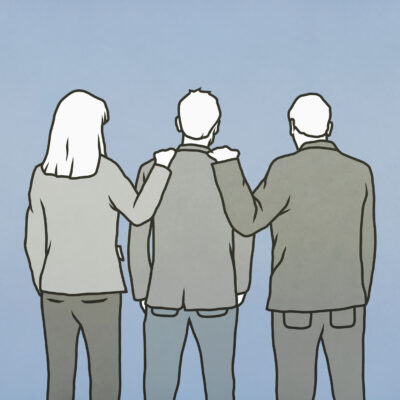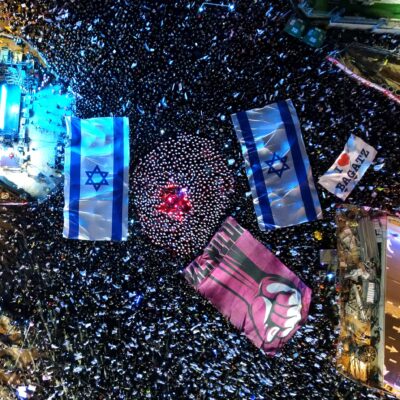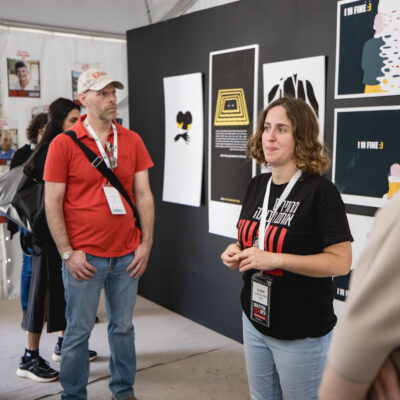Q&A
PJ Library parents looking for resources to explain antisemitism, situation in Israel to their kids, Harold Grinspoon Foundation president says
In wide-ranging interview, Winnie Sandler Grinspoon says the organization is now also providing emotional support dolls to Israeli children

Courtesy/PJ Library
Through its PJ Library initiative, providing free Jewish-themed books to children across the country, the Harold Grinspoon Foundation has a direct line to tens of thousands of young Jewish families. In the wake of the Oct. 7 terror attacks in Israel and rising global antisemitism, those families are looking for ways to speak to their young children about the current moment, the CEO of the foundation, Winnie Sandler Grinspoon, told eJewishPhilanthropy.
A recent survey of PJ Library parents revealed “loud and clear” that they wanted help in discussing the difficult topics of antisemitism and the situation in Israel with their children, Sandler Grinspoon said. The foundation is working now to develop those resources. It is also working to expand its PJ Library program to include more in-person gatherings, through an initiative known as “Get Together.”
In Israel, where the foundation runs two similar initiatives — Sifriyat Pijama for Hebrew speakers and Maktabat al-Fanoos for Arabic speakers — there was a need for increased emotional support for the child participants, Sandler Grinspoon said, so the organization created and is distributing special “hug dolls” that can help children cope with stress and emotional difficulties.
In other areas, however, the foundation is not seeing major shifts in the past year. While the number of PJ Library parents who say they want to be more engaged with the local Jewish community is high — 75% — that has remained consistent over the years, not necessarily a sign of “The Surge” that is being seen elsewhere in the Jewish world.
On Thursday, eJP spoke with Sandler Grinspoon about the foundation’s work over the past year and its goals for the future.
Judah Ari Gross: How has the past year, with the war in Israel and rising antisemitism and also “The Surge” affected the foundation’s work, in terms of camps, PJ Library and other areas that the organization is involved in?
Winnie Sandler Grinspoon: It’s interesting. We do a large survey of our subscriber base every couple of years. And we asked in January 2024, when we last issued the survey, whether recipients of PJ Library are interested in getting more connected and involved in their local Jewish communities, 75% of respondents answered yes. [But] we got a 75% yes to that very same question four years prior before the pandemic and a couple of years before that. So we have seen a steady, significant interest in engaging more with local Jewish communities for young families with young children. And so we don’t see it as a particular change because of this moment, but we see it as a continued interest. We started a program that we’re calling Get Together.
JAG: Yes, eJP had a story about it a few months ago.
WSG: We are anticipating that Get Together will be even more popular. And we just re-launched Get Together in December, making it accessible and available to all PJ Library families in North America, absent geography, whereas a couple of months ago, it had been limited to certain test markets. So we opened it up to everybody and we had more than 2,700 people ask to participate in the month of December alone. So we expect that in this moment, we may see a rise in interest in micro communities where people are coming together with other families to be in community.
JAG: Is there a way that you’re trying to take that program and leverage it in order to bring those people into more formal parts of the Jewish community?
WSG: We’ll wait and see. We’ll see how people want to engage and we will listen to the market. But we want to support opportunities to engage in the community in many different ways, whether it’s in DIY, family-led experiences with friends around in homes or in local settings, whether it’s bigger community events sponsored by Jewish organizations, established organizations like the JCCs, like the federations, whether it’s more grants to help kids get to summer camp or day school or preschool. We want to see the entire community rise up to welcome people in all the different ways that people want to engage.
JAG: Is there anything in the current moment that is changing the way that the foundation is looking at things, in terms of rising antisemitism, the incoming Trump administration, the war in Israel? Has this been like a moment for the foundation to do a fresh assessment of the work that it’s doing, or is the focus instead on maintaining the core issues and continuing and deepening those efforts?
WSG: I’ll answer that in a couple of different ways. One, we continue to do the work that we do in Israel. Israel is actually our largest PJ Library market. The program is called Sifriyat Pijama in Israel and we also have a complementary program in Israel called Maktaba Al-Fanoos, which is a literacy program with free books for kids in Arabic, so that we’re supplying books to all the kids of Israel in preschool, first and second grade — the youngest grades. We have increased resources to that partnership in Israel that we run in partnership with the [Israeli] Ministry of Education. We’ve asked the ministry what they need and are filling additional needs.
JAG: Such as?
WSG: For example, the ministry asked us to help supply emotional support dolls to classrooms for young kids who are experiencing the trauma of these past few months, these past recent months, and we are distributing 3,000, but they’re called hug dolls, emotional support dolls to classrooms. We’ve developed a new doll and we have dolls being distributed across classrooms, in the Arabic-speaking communities as well as in the Hebrew-speaking communities across the country. There’s an example of something we are doing in our usual work, but further in our usual work.
In North America, in our last survey that I told you about, we also asked parents for the first time whether they are talking to their children about antisemitism and about the Middle East and do they feel prepared for those conversations and would they like additional resources for those conversations? And the answer we got back loud and clear was they would like more resources. They would like help in those areas. And so we’re developing an initiative focused on supporting families with young children to talk to their children about antisemitism and about what’s happening in Israel.
We put together a summit of people in the field, somebody from the State Department, somebody from [the Anti-Defamation League], somebody from [the American Jewish Committee] and others who have been focused on antisemitism in North America. And we presented some of the ideas that we have and we’ll move that work forward to be continued. You and I will have a conversation in a couple of months.
JAG: And in terms of summer camps and day schools?
WSG: We continue to do the work that we do. We continue with other funders to help fund incentive grants to get children who are part of the PJ family to consider trying Jewish overnight camp for the first time. And so we’re continuing that effort.
We have a partnership with Prizmah to help use PJ library as an opportunity for the PJ library families to understand and get exposed to what day school has to offer for them.
I’ll also say that another big piece of interest for us is growing the reach of PJ Library. Although we are serving over 200,000 children here in North America every month and are in more than 40 countries at this point, distributing over 650,000 books a month, the reality here in North America is that although we have such good reach, we’re still only reaching 30% of the potential market. So we continue to see tremendous opportunities to grow those numbers. And when we, the more marketing we can do, the more outreach we do as a community, the more we have the PJ library story told, the more we can increase that number and let people know that this is a free resource available to them.

 Add EJP on Google
Add EJP on Google
